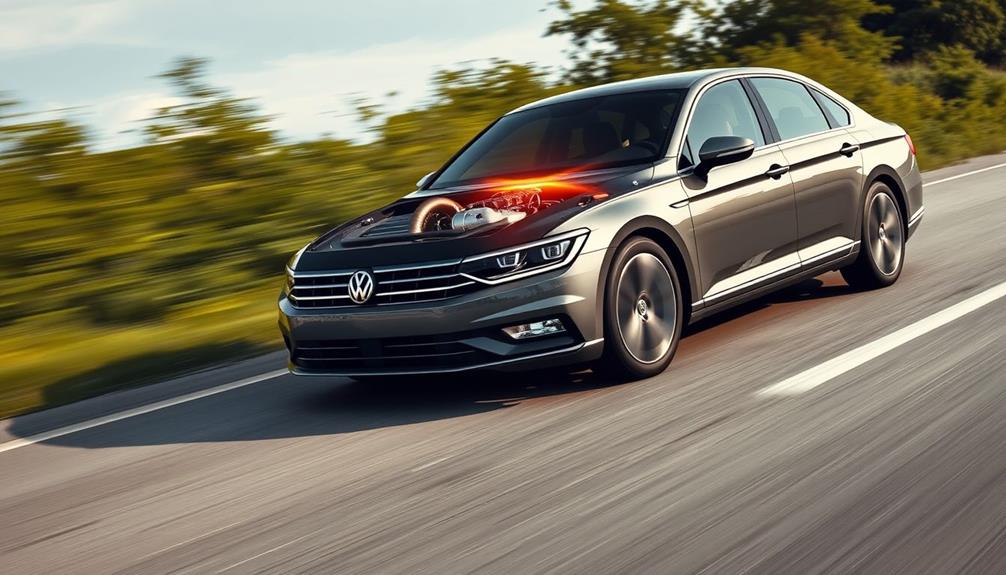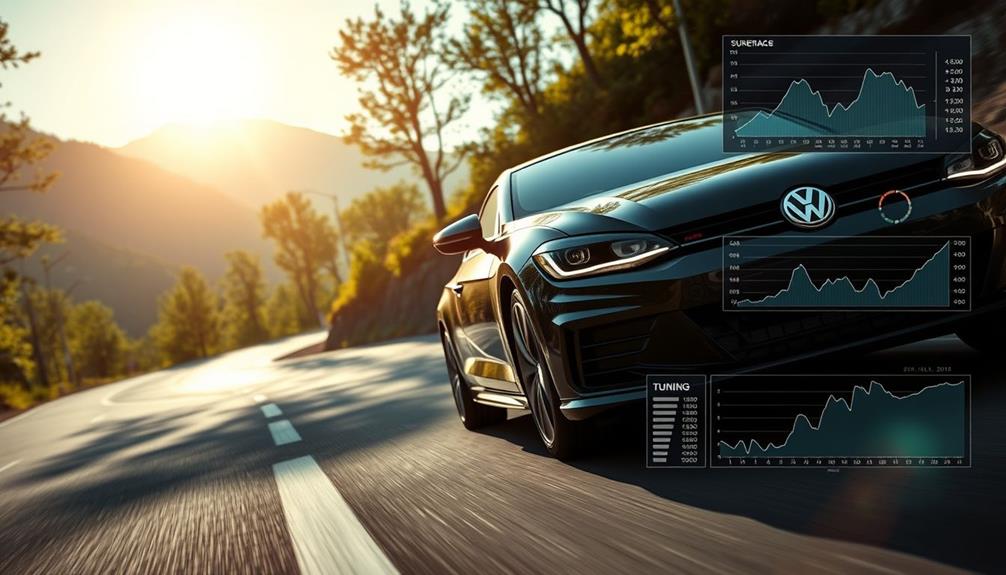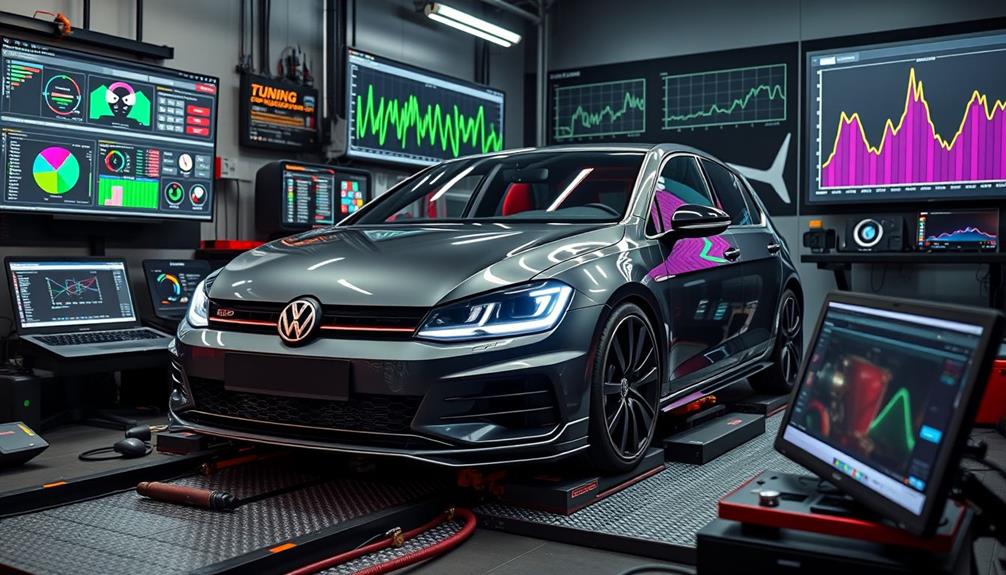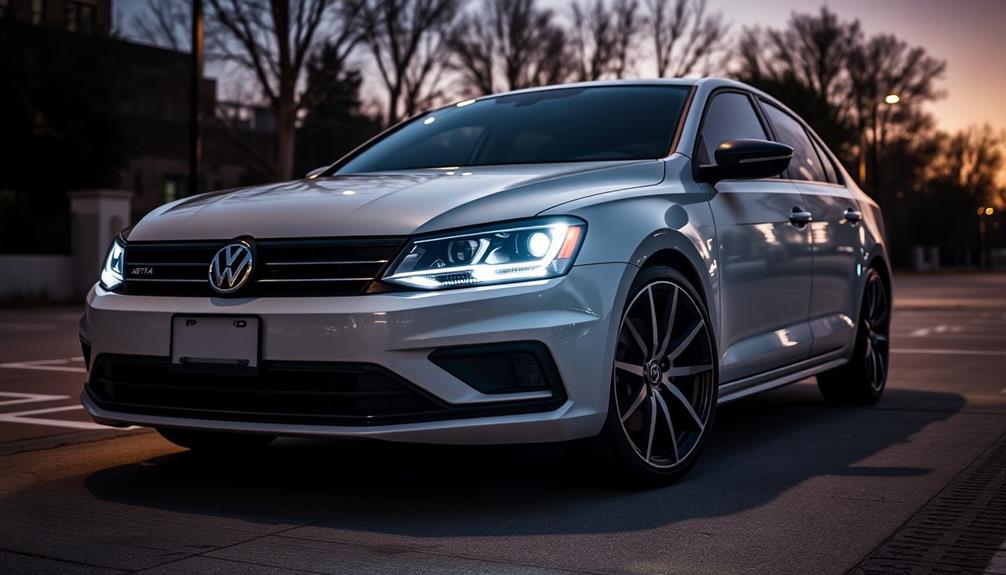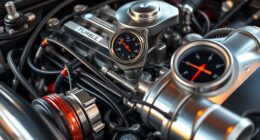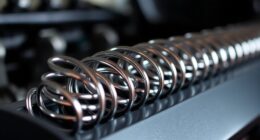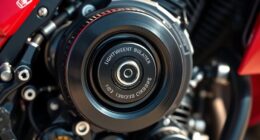TDI tuning can dramatically boost your Volkswagen Passat's performance. You can expect up to a 40% increase in power, enhancing both acceleration and drivability. The tuning process also improves fuel efficiency by as much as 20%, making your drives more economical. Installation is straightforward with a plug-and-play design, and extensive support resources are available if you need help. With seven bespoke engine map options, you can customize your driving experience to fit your needs. Want to uncover more about how TDI tuning can enhance your sedan's performance? Keep exploring to find out!
Key Takeaways
- TDI tuning can increase power output by up to 40%, enhancing the performance of your Volkswagen Passat.
- Torque levels can rise significantly, improving acceleration and overall drivability for a more responsive driving experience.
- Potential fuel efficiency improvements of up to 20% can result from optimized engine performance and cleaner combustion.
- The tuning box features seven bespoke engine map programs, allowing for tailored performance enhancements specific to your driving style.
- Easy installation with video instructions ensures a hassle-free upgrade, backed by a 5-year warranty for peace of mind.
Overview of TDI Tuning
TDI tuning transforms your Volkswagen Passat by enhancing its performance and efficiency. When you opt for TDI tuning, you can expect an increase in power output by up to 40%, tailored to your driving style through bespoke engine mapping. This means that whether you're commuting or on a long road trip, your Passat will respond to your needs.
Moreover, TDI tuning considerably boosts torque, elevating it from 285 NM to even higher levels. This improvement translates to better acceleration and overall drivability, making each drive more enjoyable.
You'll also appreciate the potential for improved fuel efficiency, which can enhance your mileage by up to 20%. This makes TDI tuning not just a performance upgrade but also an economically sound choice for daily driving.
Installation is a breeze, requiring no mechanical skills on your part. The tuning boxes come pre-programmed for immediate use, and you can follow video instructions for guidance.
Plus, TDI tuning solutions offer peace of mind with a thorough 5-year warranty and guarantee engine safety, leaving no traces behind once removed. Your Passat's transformation is just a tuning box away!
Performance Gains From Tuning
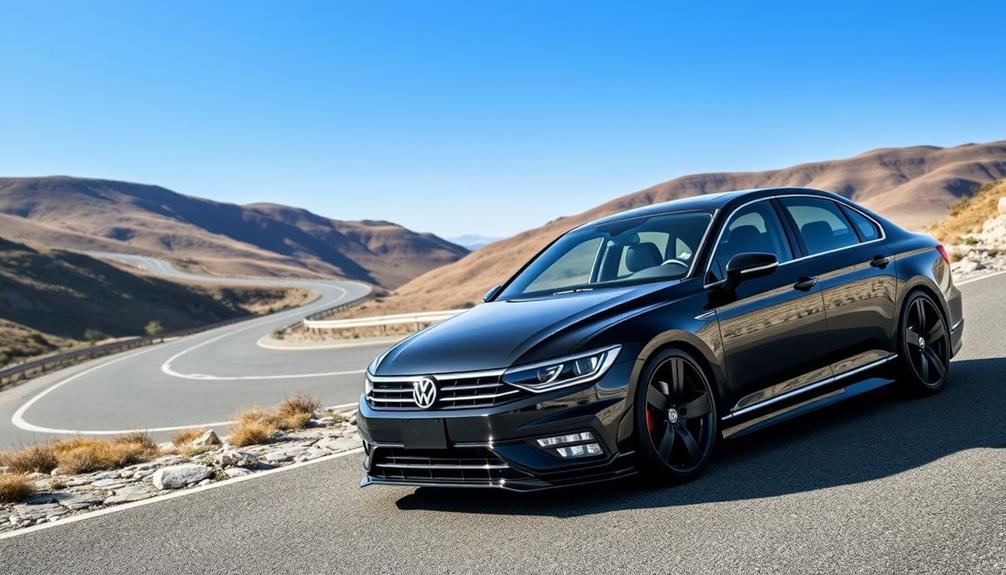
When you tune your Volkswagen Passat 1.9 TDI, you can expect impressive power increases, with gains of up to 40%.
You'll also enjoy enhanced torque, making your drives more responsive and enjoyable.
Plus, tuning can boost your fuel efficiency by as much as 20%, helping you save at the pump while enjoying a more powerful ride.
Power Increase Expectations
Releasing the potential of your Volkswagen Passat through tuning can lead to remarkable performance gains. When you install a tuning box, you can expect a power increase of up to 40%, transforming your driving experience. This significant boost in horsepower enhances your sedan's overall performance, making it more enjoyable on both city streets and highways.
With the tuning box, you gain access to seven bespoke engine map programs, allowing you to tailor the performance to your specific needs, whether it's for daily commutes or long-haul trips.
You'll also notice a reduction in turbo lag, ensuring that power delivery is immediate and sustained across the rev range, making your vehicle feel more responsive.
Moreover, tuning isn't just about raw power; it can also improve fuel efficiency by up to 20%, depending on your driving style and conditions. This means not only will you enjoy a more spirited drive, but you'll also save money at the pump.
To conclude, tuning your Passat can lead to impressive performance gains, allowing you to fully enjoy what your vehicle has to offer.
Torque Enhancement Benefits
Experience a noticeable boost in your Volkswagen Passat's performance by enhancing its torque through tuning. By tuning your 1.9 TDI engine, you can elevate torque levels from 285 NM to considerably higher figures, making your driving experience more responsive and engaging.
This increase in torque isn't just a number; it translates to improved acceleration throughout the entire rev range, allowing for quicker getaways and more dynamic driving.
With the installation of a tuning box, you can enjoy torque improvements of up to 40%. This enhancement is particularly beneficial when handling heavy loads or tackling steep inclines, making your Passat feel more capable.
You'll also notice reduced turbo lag, which means quicker throttle response and a smoother experience, especially during overtaking maneuvers.
Moreover, the balanced increase in both power and torque not only makes your driving more exhilarating but can also lead to a more economical performance overall.
Fuel Efficiency Improvements
Tuning your Volkswagen Passat not only enhances torque but also greatly improves fuel efficiency. With a well-executed tuning process, you can experience up to a 20% increase in fuel economy, depending on your driving style. The installation of a tuning box can boost power by up to 40%, allowing your engine to perform more efficiently while reducing fuel consumption during acceleration.
Here's a quick overview of the benefits:
| Benefit | Impact on Fuel Economy |
|---|---|
| Increased Power | Up to 40% more efficiency |
| Enhanced Torque Delivery | Maximizes performance |
| Minimized Turbo Lag | Reduces throttle input needed |
| Ideal Fuel Levels | Less waste, cleaner combustion |
| Everyday Driving Efficiency | Improved overall efficiency |
With enhanced torque delivery, your Passat operates at ideal fuel levels, promoting cleaner combustion for better fuel economy. Plus, minimized turbo lag means you'll enjoy a more responsive engine without excessive throttle input. Ultimately, these tuning improvements lead to a more economical and enjoyable driving experience.
Tuning Box Product Details
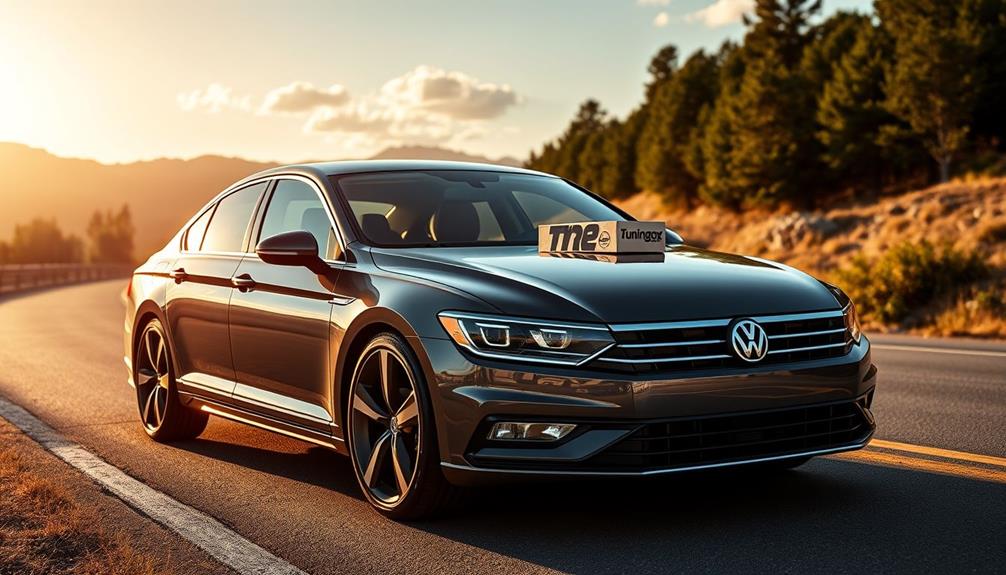
The TDI Tuning box for the Volkswagen Passat 1.9 TDI delivers impressive performance enhancements by adjusting power and torque output settings. With gains of up to 40% in power and an increase in torque from 285 NM, you'll experience a noticeable difference in driving dynamics.
This tuning box features seven bespoke engine map programs, allowing you to customize it based on your driving style—perfect for both everyday commutes and long-haul trips.
Installation couldn't be simpler. You just plug the tuning box in and secure it with cable ties; no mechanical skills are required! It comes pre-programmed for immediate use, so you won't have to waste time fiddling with settings.
Originally priced at $469.00, this tuning box is now available for just $351.75, making it a cost-effective solution for enhancing diesel performance without breaking the bank.
Plus, you'll enjoy peace of mind with a thorough 5-year warranty included in your purchase. This guarantees engine safety and allows for traceless removal if needed.
With the TDI Tuning box, you're well on your way to revealing the full potential of your Volkswagen Passat.
Warranty and Safety Features
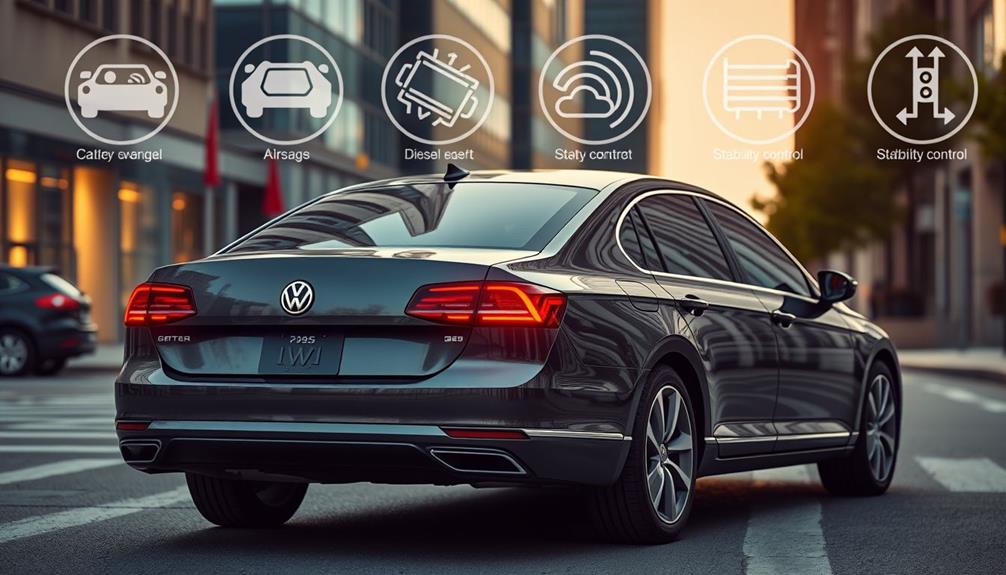
Peace of mind comes standard with the TDI tuning box for your Volkswagen Passat, thanks to its extensive 5-year warranty. This warranty guarantees that you're covered for any potential issues, allowing you to enjoy enhanced performance without worry.
Additionally, the tuning box boasts several safety features that further enhance its reliability:
- Traceless Removal: You can uninstall the tuning box without leaving any digital or physical traces behind.
- Rigorously Tested Configurations: All tuning settings undergo thorough testing to ensure engine safety and compatibility with your vehicle's specifications.
- Reprogrammable: The tuning box can be customized multiple times, allowing you to adjust it based on your driving preferences or different vehicles.
- User-Friendly Installation: It's designed for straightforward installation, requiring no mechanical skills while adhering to safety standards.
With these features, you can confidently explore the performance capabilities of your Passat, knowing that safety and warranty protections are in place.
Enjoy the boost in performance, knowing you've made a smart investment in both your vehicle and your peace of mind.
Installation Steps for Tuning
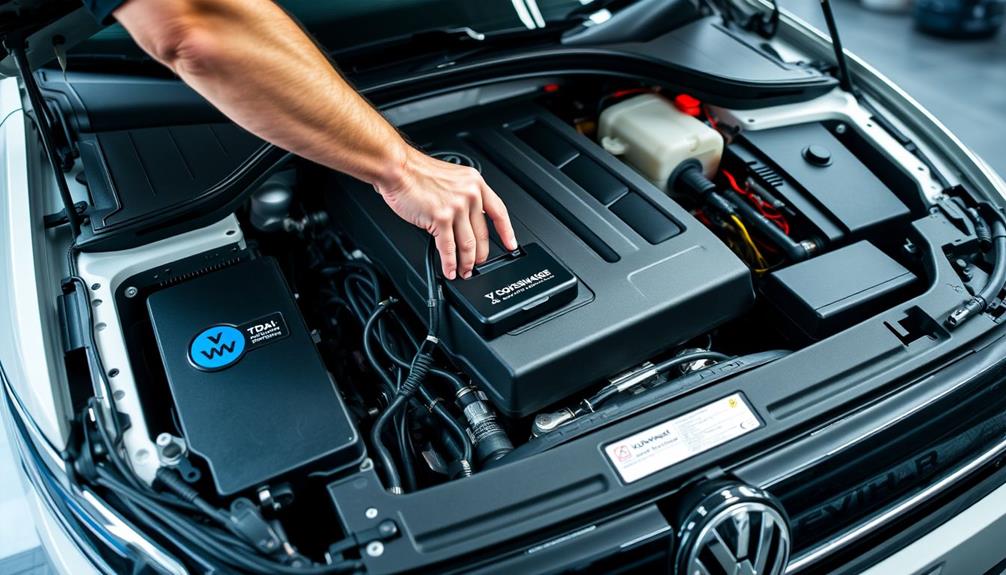
Installing the TDI tuning box for your Volkswagen Passat is a straightforward process that you can tackle with confidence. The tuning box for the 1.9 TDI model comes pre-programmed for immediate use, so you won't waste time on complicated setups.
Begin by locating your vehicle's ECU, which is usually found under the dashboard or near the engine bay.
Next, simply plug the TDI-Tuning box into the ECU. Make sure it fits securely to guarantee peak performance.
Once connected, tidy up any loose cables and use cable ties to keep everything organized for a clean setup.
To help you along the way, complete fitting instructions and step-by-step fitting videos are available. These resources are tailored for popular models, making the installation even easier.
If you run into any issues or have questions, expert assistance is just a phone call away, ensuring you're supported throughout the process.
Pricing and Value Proposition
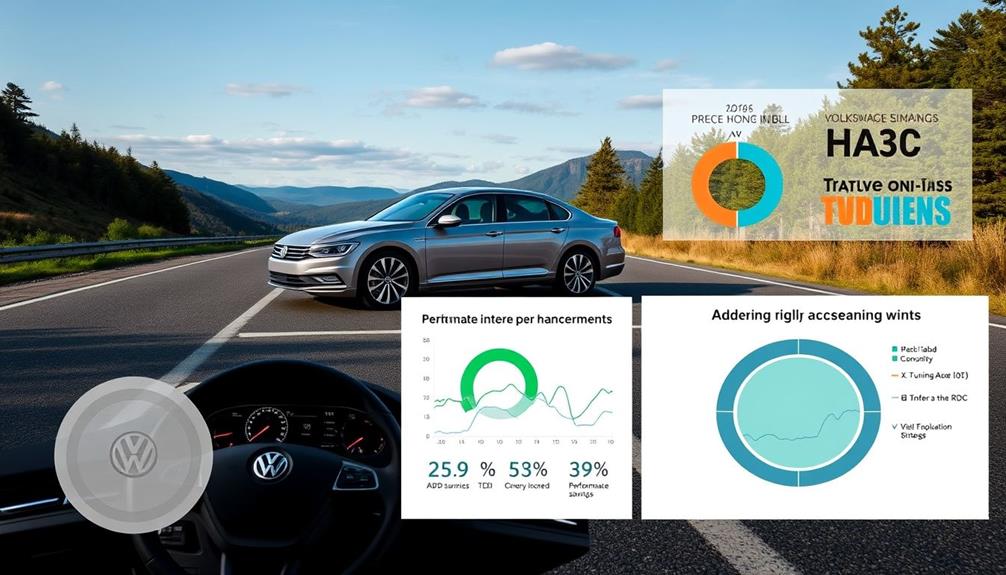
Releasing the potential of your Volkswagen Passat with a TDI tuning box not only enhances performance but also offers exceptional value.
With a discounted price of $351.75, down from the original $469.00, you're looking at significant savings for an upgrade that can yield impressive results.
Here are four key reasons why investing in a TDI tuning box is worth it:
- Power Boost: Experience power increases of up to 40%—a thrilling enhancement for your TDI engine.
- Fuel Efficiency: Enjoy fuel efficiency improvements of up to 20%, allowing you to save on gas in the long run.
- Customization: The tuning box provides adjustable power and torque settings tailored to your driving preferences and conditions.
- Long-term Savings: Over time, the performance gains and fuel savings make this tuning solution highly cost-effective.
With over 578 Volkswagen variants available for tuning, you're making a smart choice in enhancing your vehicle's performance at a competitive price.
Don't miss the chance to transform your driving experience with this valuable investment!
Enhancing Fuel Efficiency
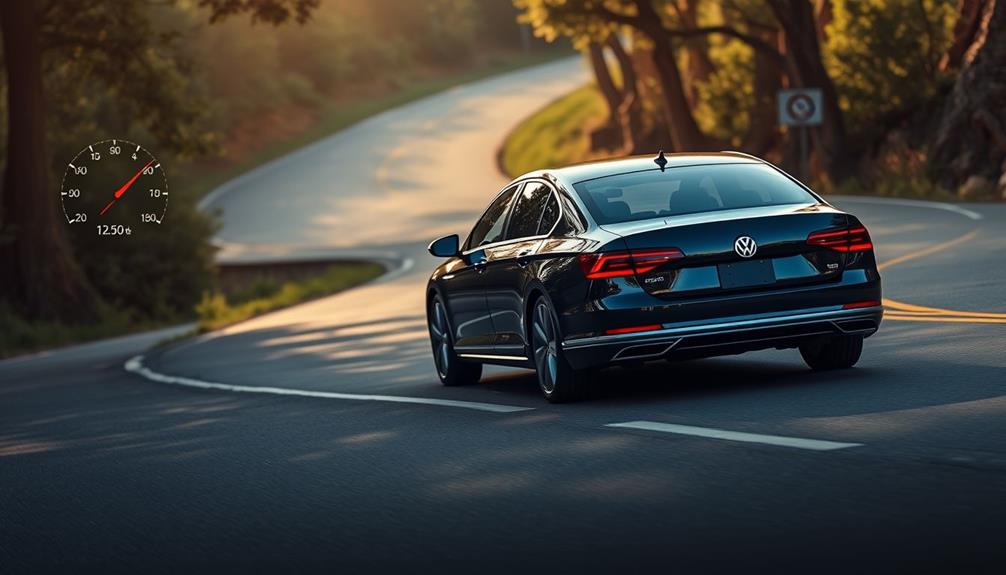
Many Volkswagen Passat owners are discovering that enhancing fuel efficiency is easier than ever with a TDI tuning box. By improving your vehicle's performance, you could enhance fuel efficiency by up to 20%, depending on your driving style and conditions. This makes the tuning box a cost-effective solution for getting more out of your Passat's TDI engine.
The tuning process uses advanced technologies like Boost Sense™ and Rev Sense™ to fine-tune power and torque output, ensuring efficient fuel consumption without sacrificing performance. You'll notice immediate improvements in your fuel economy right after installation, which is straightforward and doesn't require any mechanical skills.
To maintain peak fuel efficiency over time, it's crucial to regularly monitor and adjust the tuning parameters. This allows you to adapt to changing driving conditions, ultimately leading to long-term savings on fuel costs.
With a TDI tuning box, enhancing fuel efficiency isn't just a dream—it's an achievable reality that can keep more money in your pocket while enjoying the road. So, why wait? Embrace the benefits of tuning and make each drive more economical today!
Model Specific Tuning Options
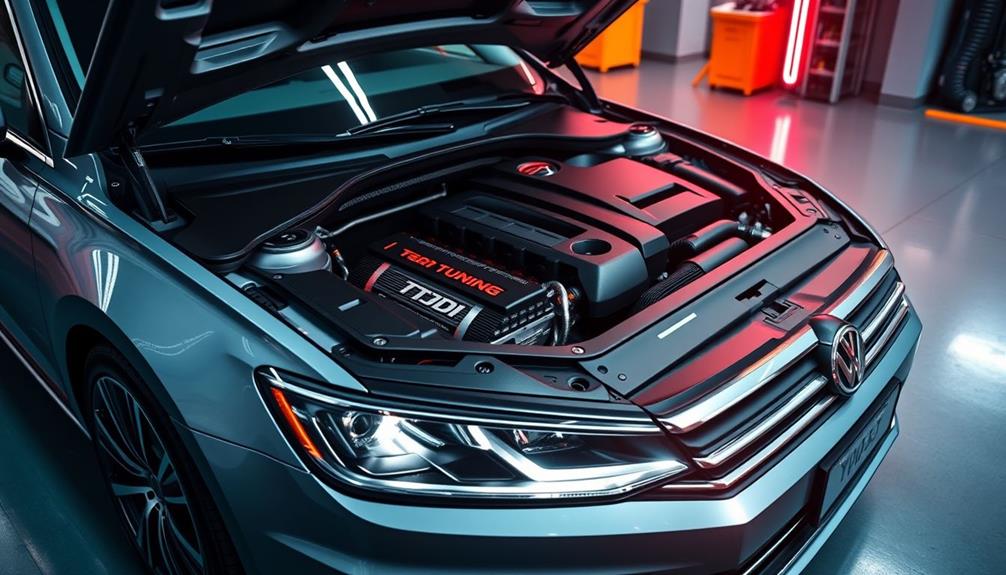
When it comes to model-specific tuning options for your Volkswagen Passat, you'll find exciting enhancements in engine performance and tuning box features.
These tuning solutions are designed for easy installation, ensuring you can quickly upgrade your ride without hassle.
Plus, you can enjoy peace of mind knowing they maintain compliance with emissions regulations while boosting your driving experience.
Engine Performance Enhancements
If you're looking to enhance your Volkswagen Passat's performance, model-specific tuning options offer exciting possibilities.
With the right tuning, you can experience significant improvements in power and torque that transform your driving experience. Here are some key benefits of tuning your Passat:
- Power Boost: You can achieve power increases of up to 40%, making your Passat feel more responsive and lively.
- Torque Enhancement: Model-specific tuning caters to the Pumpe Duse injection system, allowing for customizable settings that maximize torque.
- Fuel Efficiency: Enhanced tuning can lead to improved fuel efficiency of up to 20%, depending on your driving style, making it a cost-effective upgrade.
- Easy Installation: Tuning boxes are designed as plug-and-play solutions, ensuring that you don't need mechanical skills for installation.
Additionally, with an extensive 5-year warranty on tuning options, you can enjoy the benefits of increased performance while ensuring engine safety and reliability.
Tuning Box Features
Tuning boxes designed for the Volkswagen Passat 1.9 TDI bring a host of features tailored to elevate your driving experience. With adjustable power and torque output settings, you can customize your vehicle's performance to match your driving style.
The tuning box is pre-programmed for immediate use, meaning you can plug it in and get started without the hassle of complicated setups.
Expect a remarkable power increase of up to 40%, transforming your Passat's output from 128 BHP to a higher level, while torque can enhance from 285 NM to even more impressive figures. This significant boost not only improves acceleration but also enhances overall driving dynamics, making every journey more enjoyable.
Designed specifically for vehicles with a Pumpe Düse injection system, this tuning box guarantees compatibility with your engine's unique specifications and performance characteristics.
Plus, with an extensive 5-year product warranty, you'll gain peace of mind regarding safety and reliability while enjoying the enhanced TDI power.
Elevate your driving experience today with this expertly crafted tuning solution!
Compatibility and Installation
The tuning box for the Volkswagen Passat 1.9 TDI is crafted for seamless compatibility, ensuring it works perfectly with your engine's specifications.
Designed to enhance performance, it optimizes power and torque output settings right out of the box. Whether you're driving on highways or maneuvering city streets, this tuning box adapts to various driving conditions, making it a versatile enhancement for your vehicle.
Installation is a breeze and doesn't require any mechanical skills. You'll simply plug it in and secure it with cable ties.
Here's what you can expect:
- Comprehensive Instructions: Each tuning box comes with detailed fitting instructions.
- Step-by-Step Videos: Access videos tailored for popular models, guiding you through the process.
- Immediate Use: It's pre-programmed for instant performance gains without any extra setup.
- Versatile Compatibility: Enjoy improved performance tailored to your driving preferences.
With such straightforward installation and excellent compatibility, boosting your Passat's diesel performance has never been easier.
Get ready to experience a new level of driving excitement!
Community Insights and Experiences

Passat owners are diving into the wealth of knowledge shared within the TDI community, where over 6.6K threads and 117.8K messages buzz with insights on performance upgrades.
Here, you'll find a treasure trove of experiences related to tuning boxes, which many members swear by for boosting their vehicle's performance. Users frequently exchange tips on optimizing fuel efficiency and power gains, emphasizing that these tuning boxes can increase power by up to 40% while enhancing fuel efficiency by up to 20%.
Many community members report successful installations, praising the plug-and-play nature of these devices. With step-by-step fitting videos readily available, you won't feel lost during the process.
Discussions also highlight the importance of maintaining engine reliability through proper tuning, with recommendations to monitor your vehicle's performance closely and avoid excessive power spikes.
Satisfaction levels among Passat owners are high, with many sharing glowing testimonials about the performance enhancements achieved through tuning.
This supportive environment encourages those looking to upgrade their vehicles and reinforces the idea that you're not alone in your quest for better diesel performance.
Future of TDI Technology
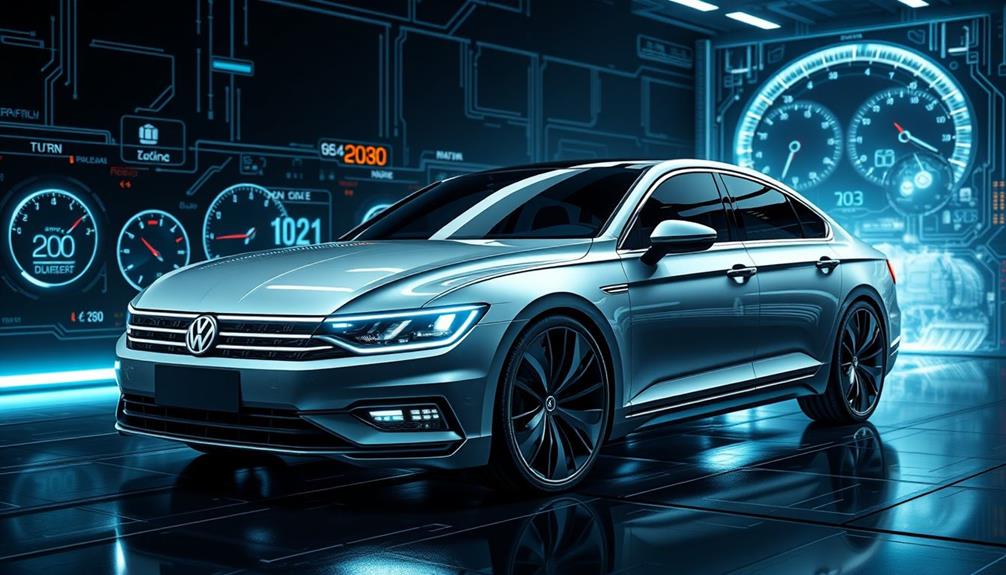
As you explore the future of TDI technology, you'll notice a strong emphasis on innovation and meeting stricter emissions regulations.
Advances like improved turbocharging and hybrid systems are set to enhance both efficiency and performance in your Volkswagen Passat.
With ongoing research focused on cleaner combustion and real-time engine adjustments, the driving experience is about to get even better while still being eco-conscious.
Innovations in Diesel Technology
Innovative advancements in diesel technology are reshaping the future of TDI engines, particularly for models like the Volkswagen Passat.
These innovations are driving performance improvements and enhancing the overall driving experience. Here's what you can expect:
- Hybridization and Electrification: Future TDI engines will likely combine diesel efficiency with electric power, boosting performance while reducing emissions.
- Biodiesel Compatibility: Ongoing research is highlighting the potential for sustainable diesel options that keep TDI performance intact while being kinder to the environment.
- Real-Time Tuning Technologies: New mobile apps allow you to make on-the-fly adjustments to your engine settings, letting you prioritize power or fuel economy based on your needs.
- Advanced Turbocharger Designs: Innovations in materials and airflow management are enhancing turbocharger efficiency, essential for maximizing performance in modern TDI engines.
These innovations in diesel technology guarantee that your Volkswagen Passat not only meets your performance expectations but also aligns with a more sustainable future.
Emission Regulations Impacting Performance
Tightening emission regulations are reshaping the landscape for TDI technology in the Volkswagen Passat and other diesel vehicles. As these regulations become more stringent, manufacturers are pressured to adopt advanced technologies that comply without sacrificing performance.
The introduction of the EA189 engine, which shifted from a Pumpe Düse to a Common Rail system, has improved fuel delivery precision but also tightened the grip on emissions standards.
Diesel particulate filters (DPFs) and selective catalytic reduction (SCR) systems are now integral to TDI engines. While these features help meet emission regulations, they can restrict your options for performance tuning if not managed carefully.
If you're considering enhancements, be aware that any modifications you make must account for these components to avoid compromising efficiency or legality.
The ongoing discussion about diesel engines' environmental impact can influence your decisions regarding upgrades. Future bans on diesel vehicles in urban areas may push you to think twice about investing in performance enhancements.
Exploring biodiesel and alternative fuels could present new opportunities to boost performance while adhering to emission regulations, but they also come with their own set of challenges. Balancing performance and compliance will be essential moving forward.
Frequently Asked Questions
Can You Tune a TDI Engine?
Yes, you can tune a TDI engine. With a tuning box, you'll boost power and torque considerably, enhancing your driving experience. Installation's simple and won't affect your warranty, so you've got nothing to worry about.
What Does Tdi-Tuning Do?
Imagine you're revamping a classic chariot; TDI-Tuning optimizes your engine's performance, boosting power and torque while preserving fuel efficiency. You'll enjoy customizable settings, enhanced throttle response, and a straightforward installation process without needing mechanical expertise.
What Is the Top Speed of a Passat B6 2.0 TDI 140 Hp?
The top speed of your Passat B6 2.0 TDI with 140 hp is around 210 km/h (130 mph). With proper maintenance, you might even push that speed further, enhancing your driving experience.
What MPG Does a Passat B6 1.9 TDI Get?
The Passat B6 1.9 TDI usually gets around 50-55 MPG on the highway and 35-40 MPG in the city. Your driving style and maintenance habits will influence these numbers considerably. Regular maintenance helps maintain efficiency.
Conclusion
So, you thought your Volkswagen Passat was just a sensible sedan? With TDI tuning, it's more like a hidden sports car waiting to be released. Who knew boosting performance could be so simple? By enhancing your ride's efficiency and power, you're not just driving; you're making a statement. Consider the community insights and model-specific options, and you'll realize that tuning isn't just a trend—it's a revolution. Who knew practicality could pack such a punch?
